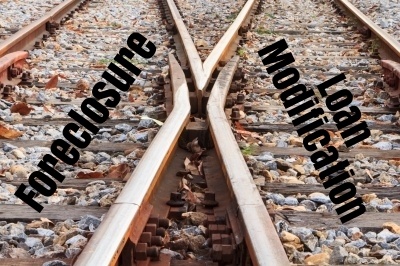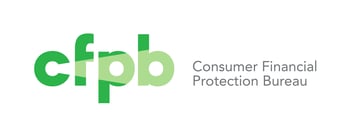 Beginning in 2014, the Consumer Financial Protection Bureau (CFPB) established new rules to protect homeowners facing foreclosure from unnecessary expenses and surprises. Among the rules are restrictions on the mortgage servicer's ability to pursue foreclosure while reviewing your application for a loan modification, a practice known as dual-tracking.
Beginning in 2014, the Consumer Financial Protection Bureau (CFPB) established new rules to protect homeowners facing foreclosure from unnecessary expenses and surprises. Among the rules are restrictions on the mortgage servicer's ability to pursue foreclosure while reviewing your application for a loan modification, a practice known as dual-tracking.
Dual-tracking has been a problem because homeowners can be under the impression that a loan modification is going to be successful, and then be surprised when they are foreclosed on. Restrictions on the practice should give borrowers more time to plan, and a better understanding of their lender's intentions.
The new CFPB rules state that foreclosure cannot be started until you're at least 120 days delinquent, and that the process can't move forward once you've submitted a complete loan modification application. Your application would need to be reviewed in full and denied before foreclosure can be resumed. These requirements should give borrowers enough time to apply for a loan modification, which the banks must consider seriously.
From the banks' perspective, dual-tracking is an option they'd prefer to have available. Why should they pause the foreclosure process just because the homeowner is applying for a loan modification or loss mitigation option? If the loan modification or other effort is unsuccessful, and the foreclosure resumes, it will be behind by however long it took to review the application. It also takes communication within the lender's organization, and between the lender and the borrower to refrain from dual-tracking.
The CFPB has created new rules to protect and inform homeowners, but just because something like dual-tracking is restricted doesn't mean it doesn't happen anymore.
Dual-Tracking Can Still Happen
 In June, 2015, the CFPB's Supervisory Highlights report stated that its examiners found evidence that the actions of mortgage servicers led borrowers to believe their trial modifications were canceled. The CFPB website states “The CFPB examiners found at least one servicer that sent notices of intent to foreclose to borrowers already approved for trial modifications. This dual-tracking could mislead consumers to believe the servicer had abandoned the trial modification. The CFPB examiners also found at least one servicer that, because of a system error, sent notices to borrowers who were current on their loans saying that foreclosure would be imminent.”
In June, 2015, the CFPB's Supervisory Highlights report stated that its examiners found evidence that the actions of mortgage servicers led borrowers to believe their trial modifications were canceled. The CFPB website states “The CFPB examiners found at least one servicer that sent notices of intent to foreclose to borrowers already approved for trial modifications. This dual-tracking could mislead consumers to believe the servicer had abandoned the trial modification. The CFPB examiners also found at least one servicer that, because of a system error, sent notices to borrowers who were current on their loans saying that foreclosure would be imminent.”
In the report, the CFPB's director, Richard Cordray, said “We are extremely concerned that one year after the CFPB’s mortgage servicing rules went into effect we are still finding runarounds and illegal dual-tracking.”
Some of the activity by the banks can come from honest mistakes. These rules are new, and the department of the bank that accepts your loan modification may not have great communication with the department that's working on foreclosure. Or, it could just be intentional rule-breaking. Either way, it's a good idea to know what the rules are so that you get every benefit you're entitled to.
National Mortgage Settlement and Bills of Rights
 The National Mortgage Settlement also prohibits the practice of dual-tracking. The National Mortgage Settlement is a settlement with the five largest mortgage servicers (Ally/GMAC, Bank Of America, Citi, JP Morgan Chase, and Wells Fargo) and the federal government and 49 states. The settlement, announced in 2012, requires the banks to pay $26 billion to homeowners and the government to settle numerous federal and state investigations related to mortgage servicing abuses. The settlement is the second largest civil settlement in U.S. history.
The National Mortgage Settlement also prohibits the practice of dual-tracking. The National Mortgage Settlement is a settlement with the five largest mortgage servicers (Ally/GMAC, Bank Of America, Citi, JP Morgan Chase, and Wells Fargo) and the federal government and 49 states. The settlement, announced in 2012, requires the banks to pay $26 billion to homeowners and the government to settle numerous federal and state investigations related to mortgage servicing abuses. The settlement is the second largest civil settlement in U.S. history.
Like the CFPB rules, the settlement states that the banks must review your completed loan modification application, and cannot sell the property, while the application is under review. Some states have also passed a homeowner bill of rights that prohibit dual-tracking.
Know and Assert Your Rights
It is possible to be a victim of dual-tracking and not even know it, which is yet another reason to have an experienced attorney look at your foreclosure and loan modification documents. Amerihope Alliance Legal Services has seen dual-tracking with clients and has filed formal complaints with the CFPB because of it. You can try suing your lender if you believe you've been dual-tracked, but remember that the litigation can be very expensive, and the lenders have very deep pockets. So, suing is not recommended for most homeowners.
Keep in mind that, just because you've sent in some documents for your loan modification application, you're not immune from foreclosure. Your modification is not considered to be formally accepted and under review until you have submitted all the required documents. If denied, you need to take the reasons why into consideration, appeal and reapply as soon as possible.
Remember that dual-tracking as a process is not outright illegal, it is restricted. There are specific rules and prohibitions on it that are intended to protect homeowners. No one should lose their house because their lender is taking the most convenient and profitable course of action without regard for the consequences to the homeowner. The federal CFPB rules, National Mortgage Settlement, and state bills of rights are formal restrictions to protect against that.
Navigating through all the rules, laws, procedures, and paperwork to defend against foreclosure can be overwhelming. And, unfortunately, there are scammers looking to take advantage of vulnerable people. To assert your rights and have the best chance of getting a loan modification and keeping your home, it is recommended that you hire a qualified attorney with a record of helping people in your situation find the best solution.
Image courtesy of tiverylucky at FreeDigitalPhotos.net










